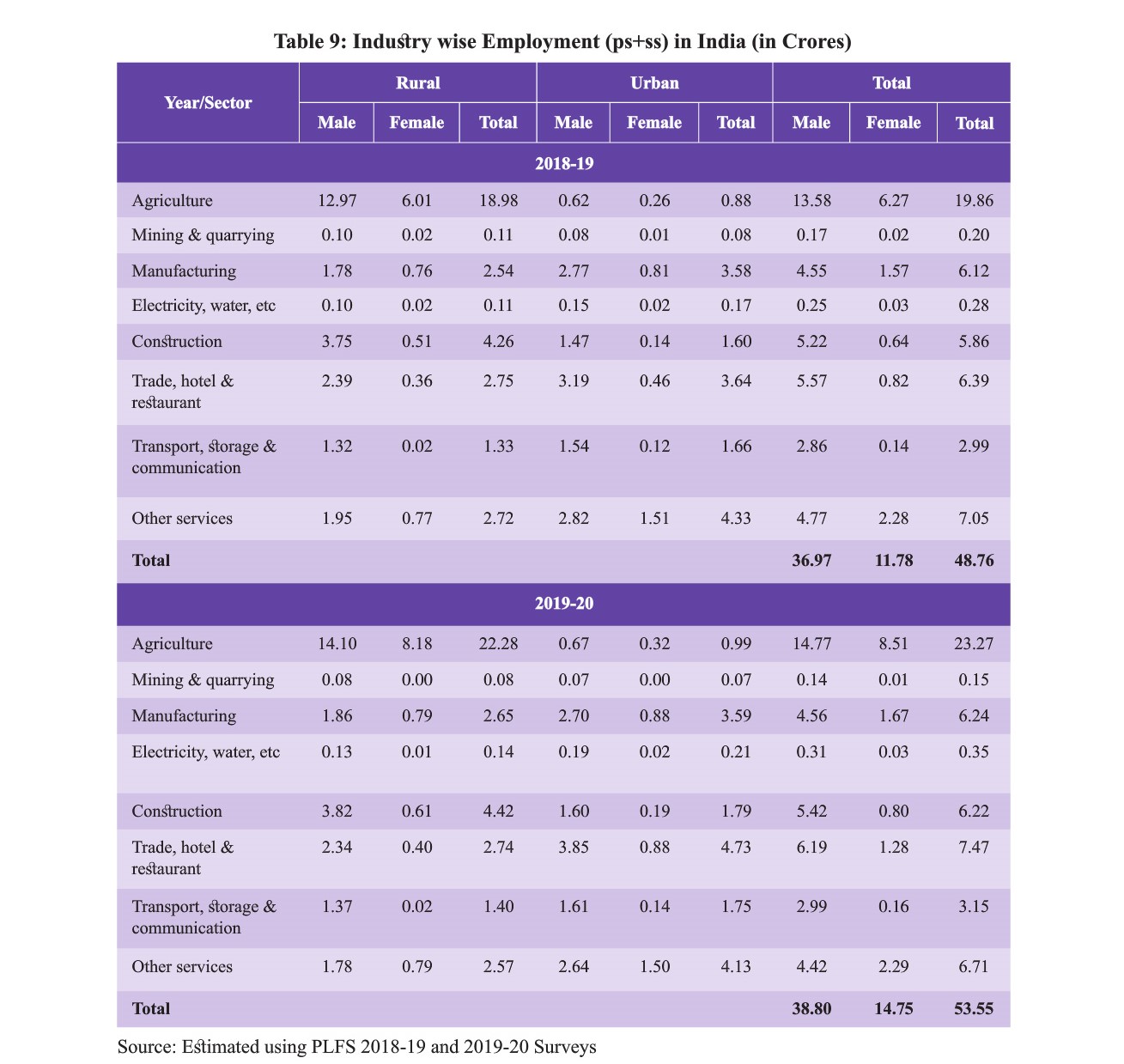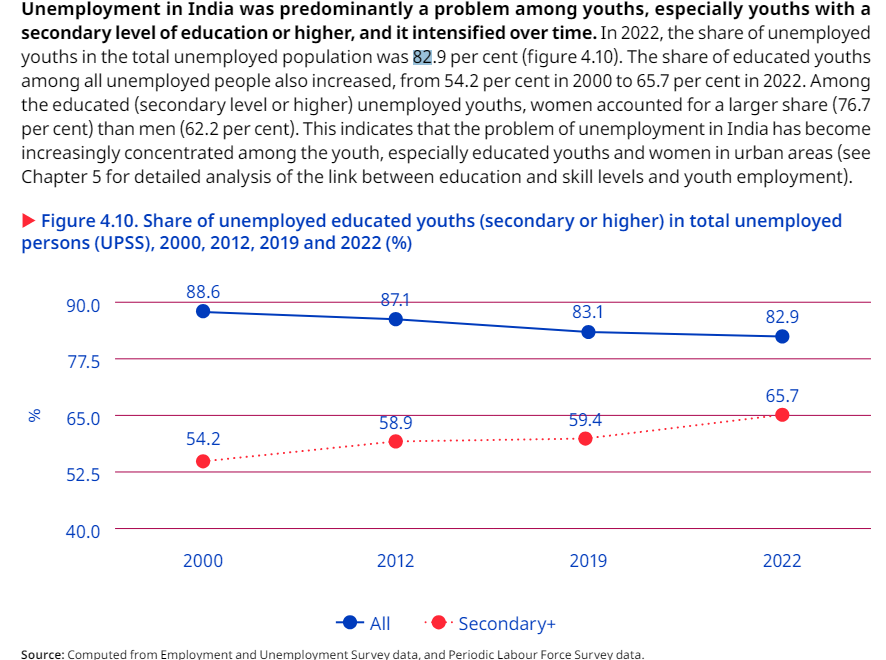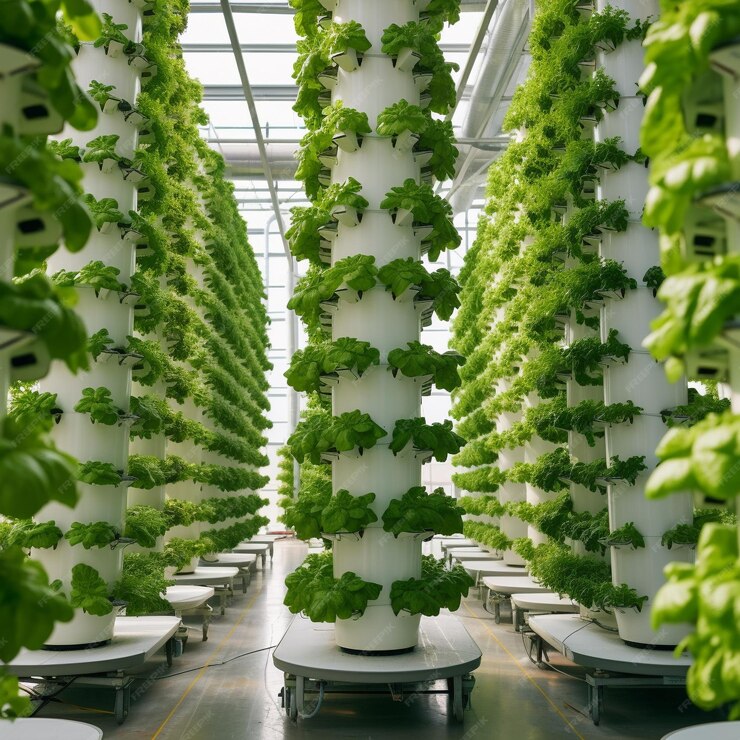India's agricultural sector presents a puzzling situation. On one hand, it stands as the country's top employer, providing livelihoods for nearly 148 million individuals. This dominance seems at odds with another reality: India boasts a growing, highly educated population. This intriguing paradox, where high agricultural employment coexists with significant youth unemployment, demands closer examination.

Let's delve into the reasons behind this phenomenon and explore a promising solution - the rise of urban farming - that may offer new opportunities for India's educated youth.
Informal Sector and Self-Employer
India's employment landscape is widely informal, with a significant portion (52%) of the workforce engaged in self-employment and encompassing small businesses, independent professionals, and household enterprises. Agriculture, with its low burden on the economy, regularly absorbs a substantial portion( of this self-employed segment.
Rural Livеlihood Dependence
70% of rural households primarily depend on agriculture for their survival. Urbanisation is on the rise, and agriculture remains crucial for rural communities. However, the sector's capacity to continue absorbing more labour raises concerns about long-term sustainability. It's vital to explore avenues for diversity and skill development in rural areas to create alternative employment opportunities. Importantly, integrating technology and data-driven practices into traditional agriculture can increase efficiency and productivity and potentially create a demand for skilled labour within the sector itself.

Educated youth and unemployed paradox
India faces a contrasting situation where 82.9% of the unemployed population comprises educated youth. This highlights a mismatch between educational qualifications and available job opportunities. Unemployment rates are significantly higher for graduates compared to those with lower education levels, suggesting a need for better job training and quality employment that promote the skills and knowledge of educated youth. Here, revamping agricultural education to incorporate modern farming techniques, business acumen, and digital literacy can bridge the gap and make agriculture a more attractive career path for young people. This person is already introducing precision farming, agricultural marketing, and a communication channel to equip them with the necessary skills to thrive in a technology-driven agricultural sector.

Urban Farming: A Viable Avеnuе for Self-Employment and Innovation
India has a paradox. It has high agricultural employment and high youth unemployment among the educated. This demands innovative solutions. Urban farming steps onto the stage as a potential bridge. This growing trend uses the skills and knowledge of educated youth. It gives them a path to self-employment and a link to the source of our food. Also, urban farming can benefit people and the whole nation. By embracing innovative approaches, government support programs and revamping agricultural education, India can unlock the potential of urban farming for:
Entrepreneurial Opportunities: Urban farming creates entrepreneurial opportunities. It lets people be their own bosses. They gain self-reliance and control over their income. This lets them use their business skills and education. They can use them to build and run their own small, lasting businesses.
Skill Development and Knowledge Application: Urban farming needs scientific knowledge, project management skills, and tech literacy. Well-educated young people can use skills in plant science, data analysis to boost yields, and online marketing. This helps them to run successful urban farms.
Continuous Learning and Innovation:Urban agriculture is a lively field that values learning and exploration. Educated people often use their research skills to learn about new methods, like hydroponics and vertical farming. This approach promotes innovation and experimentation. It helps them improve their farms and enhances urban agriculture.
Personal Connection to Food Security: Urban farms help people connect with their food. They grow their produce. This teaches them about agriculture and sustainability. This empowers them to make informed choices about their diet and contribute to local food security initiatives.
Flexible Work Schedules: Urban farming is more flexible than traditional agriculture. It lets educated people balance it with other tasks. This makes it attractive for those seeking a side job or a career change.

Educated youth in India can embrace urban agriculture. They can use their skills and knowledge to carve a unique path to self-sufficiency. They can also help create a more sustainable and resilient food system for the nation.
Conclusion: Cultivating a Collaborative Future
To fully realise the potential of urban farming in India, a collaborative approach involving various stakeholders is crucial.
Government Support:
Initiatives like the 75% subsidy programme for projects like rooftop gardens, vertical farming, and hydroponics make urban farming financially attractive for eligible individuals living in urban areas. This not only supports aspiring entrepreneurs but also encourages the adoption of sustainable practices within cities.
Eligibility and Considеrations
To avail of these subsidies, aspiring urban farmers must be residents of urban areas, have suitable growing spaces like rooftops or balconies, cooperate with local authorities, and submit detailed project proposals. These strategies ensure responsive and well-planned urban farms that integrate seamlessly into the urban environment.
Educational Institutions:
Revamping agricultural education to include urban farming techniques, along with business analysis and communication skills, can equip graduates for success in this sector.

Technology Providers:
Develop affordable technology solutions, like sensor-based irrigation systems and online marketing platforms dedicated to urban production, which can enhance efficiency and connect urban farmers with consumers.
Urban Communities:
Promoting awareness about the benefits of urban farming organising workshops on various techniques and creating space for community gardens can encourage participation and build a network of urban farmers.
By working together, these stakeholders can create an environment where urban farming flourishes and contributes to a future where the agricultural sector is not only the highest employer but also a beacon of innovation and sustainability and a self-employed opportunity for its growing population.
ⒸCopyright 2024. All Rights Reserved Powered by Vygr Media.









